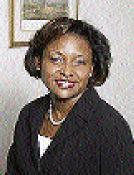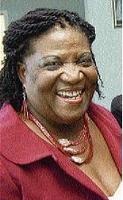
Mcgregor General elections sometimes lead to court actions or lengthy recounts. After all, there is much at stake, and the will of the people cannot be truly represented if the results of the polls are not accurate.
Most persons may recall the U.S. presidential election in 2000 and the historic Florida recount. Perhaps fewer still recall our own general election in 1997 which resulted in a four-year legal battle between Abe Dabdoub and Phyllis Mitchell regarding the outcome of the polls in the North East St. Catherine constituency.
In the local case, Phyllis Mitchell was first declared the winner after a magisterial recount of votes showed that she had a 30-vote majority. Abe Dabdoub then filed an election petition in the Supreme Court to seek a declaration that he was the Member of Parliament (MP) and the duly elected representative in the constituency. He eventually won.
Based on the Election Petitions Act, any person can present a petition to the Supreme Court to complain that a MP was not duly elected. This petition must state the grounds on which the challenge is raised. Steps may also be taken by a specially constituted authority, which may either halt the taking of polls on election day or apply to the election court to declare the poll void.
Some of the grounds on which the poll may be declared void are:
The number of votes cast in a constituency exceed the number of electors on the voter's list for that constituency.
Ballot boxes are stolen destroyed or tampered with; and the number of electors on the list for the affected polling station is more than the difference between the number of votes which divide the candidates.
The presiding officer signed ballots under duress and the numbers of such ballots cast doubt on the majority of votes.
Votes are polled by persons who are not bona fide electors.
There is an upsurge in violence or irregularity during election day in any polling station which distorts the process of free and fair elections.
The trial of an election petition is expected to commence within 90 days after the petition is filed and it will be heard by a single judge of the Supreme Court. Once the trial is concluded, the judge has 48 hours within which to render his decision and send a certificate to the Speaker of the House of Representatives. However, an appeal may also be filed to the Court of Appeal, but the decision of the Court of Appeal is final. That is to say, there can be no further appeal to the Privy Council.
The Election Petitions Act sets out very strict timelines to be followed if an election petition is to be issued and heard. The court has even ruled that delays are not tolerated because the court has no jurisdiction to extend time. How then can one explain why the case involving Abe Dabdoub and Phyllis Mitchell took so long to be heard?


( L - R ) Phyllis Mitchell, Abe Dabdoub
Sherry-Ann McGregor is a partner and mediator with the firm Nunes, Scholefield, DeLeon & Co. Send feedback and questions to lawsofeve@yahoo.com or Lifestyle@gleanerjm.com.
